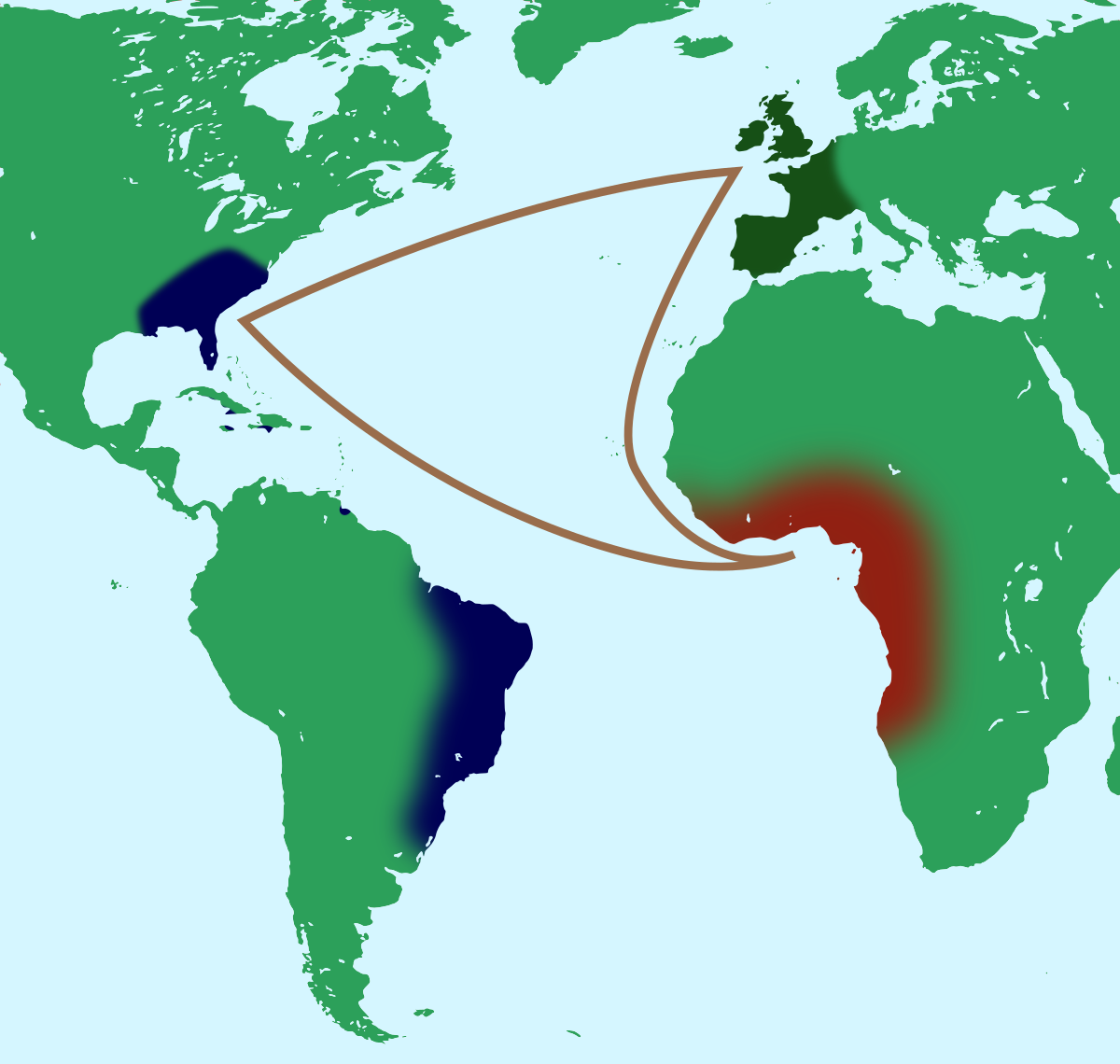The middle passage of the triangular trade system began in
The Middle Passage
Moore, was picked up in by historian George C. Mason, and reached full consideration from a lecture in by American businessman and historian William B. Newport, Rhode Island was a major port involved in the colonial triangular slave trade. Many significant Newport merchants and traders participated in the trade working closely with merchants and traders in the Caribbean and Charleston, South Carolina. From Wikipedia, the free encyclopedia. Trade among three ports or regions. By country or region. Opposition and resistance.
Oxford: Oxford University Press. ISBN Retrieved 16 October By the time of [ The British slave trade and public memory.
- real time forex quotes free.
- thomas cook forex nehru place.
- forex ziraat.
- What was the middle passage_.
- Transatlantic trade (article) | Khan Academy?
- Accessibility links.
New York: Columbia University Press. Accessed 6 November National Maritime Museum. Archived from the original on 25 November And a Bottle of Rum. New York: Three Rivers Press.
To quote from this article
Accessed 28 March Middleton, Tobacco Coast. June The Journal of Economic History. ISSN In Miller, Patti ed. Encyclopedia Virginia. Retrieved 4 March Trade, Slavery and Emancipation. Explorations in Economic History. The New England Quarterly. JSTOR University Museum External relations of early Iron Age Crete, — B.
New York: Walker, Bristol and the Atlantic Trade in the Eighteenth Century. Cambridge: Cambridge University Press, Sugar as food commodity.
"The Middle Passage" []
List of sugars and sugar products. Sugar Program. Danish West Indies Fiji Hawaii. Category Production. Part of a series on trade routes. Hidden categories: Webarchive template wayback links Articles with short description Short description matches Wikidata Commons category link is on Wikidata. Namespaces Article Talk. The practice of slavery was often justified on philanthropic or religious grounds.
By the late 18th century, moral and political opposition to the slave trade was growing in Britain and the US, as well as in other parts of Europe. Groups such as the Quakers in North America and the Society for the Extinction of the Slave Trade in Britain were instrumental in raising public awareness of the slave trade through public petitions, boycott campaigns and the dissemination of materials describing and sometimes illustrating the living conditions of slaves onboard the trade ships or working on the plantations.
Slaves also rose up against their subjugation, most notably in Haiti in the Revolution of to This single event marked a significant turning point for the slave trade as the colonial powers began to recognise the political and military risks of such uprisings.
- You need to have JavaScript enabled in order to access this site.;
- hbts trading system.
- gulf news gold forex.
- commission forex brokers;
- cara menggunakan forex ea generator.
- zimbabwe biodiversity strategy and action plan?
This factor, combined with the growing voices of the abolitionist movement and the changing economic conditions that had reduced the economic significance of some European colonies, signaled the beginning of the end of the transatlantic trade. The tide had turned. In subsequent years other European countries followed suit with laws prohibiting slavery; however it was not until 80 years later that the transatlantic slave trade was finally extinguished, with Cuba and Brazil abolishing it in and respectively.
The legacy of the transatlantic slave trade is the subject of much debate. There can be no doubt that it resulted in the destruction of a significant portion of the language, culture and religion of millions of enslaved Africans.
The removal of such large numbers of people from Africa disrupted the African economy and is believed by some scholars to have permanently disadvantaged Africa compared to other parts of the world. It can also be argued that slavery redefined Africans to the world, leaving a legacy of racism and stereotyping of Africans as inferior. Little is known about the year long transatlantic slave trade and its lasting consequences felt throughout the world, or of the contribution of slaves to the building of the societies of their enslavement. This lack of knowledge has served to marginalize people of African descent across Europe, North America and South America.
The purpose of this Day is to honour the memory of those who died as a result of slavery as well as those who have been exposed to the horrors of the middle passage and have fought for freedom from enslavement. In addition, it is a day to discuss the causes, consequences, and lessons of the transatlantic slave trade in order to raise awareness about the dangers of racism and prejudice. Skip to left navigation Skip to content.
Background Information Imagine being torn from your weeping family as a result of ethnic warfare… forced to walk hundreds of miles until you reach the sea on the West African side of the Atlantic Ocean.
